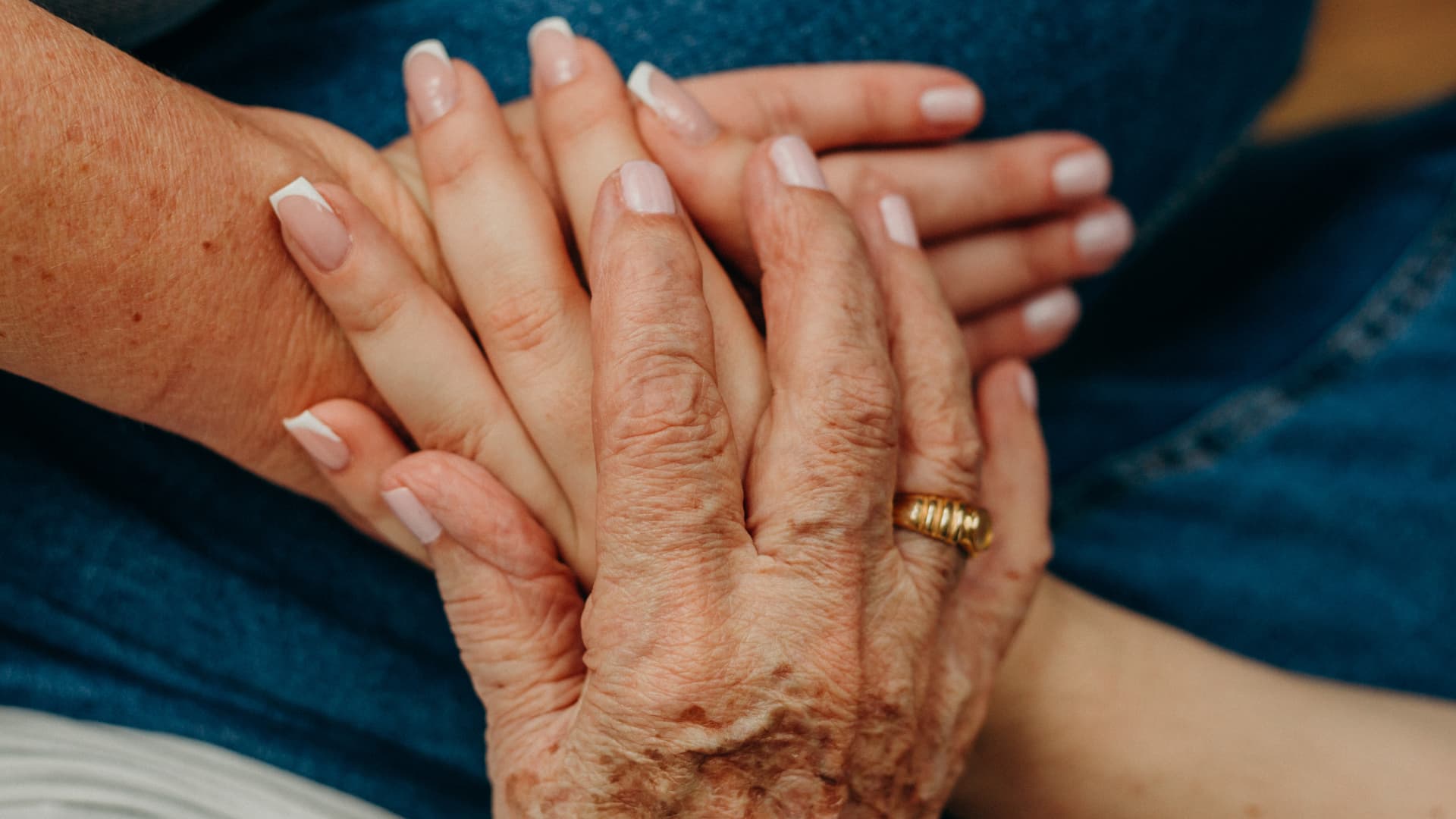Florida Lady Bird Deed: Basics and Key Benefits
Key Takeaways on Florida Lady Bird Deeds
- A Florida Lady Bird Deed Helps Avoid Probate Without Giving Up Control
- It’s a Cost-Effective Alternative to a Revocable Living Trust
- Not Right for Everyone—Especially with Homestead or Family Complications
Table of Contents
- Introduction to the Florida Lady Bird Deed
- What is the Florida Lady Bird Deed?
- Examples of Lady Bird Deeds in Real Life
- Is a Lady Bird Deed right for you?
- Benefits of the Florida Lady Bird Deed
- Disadvantages of the Florida Lady Bird Deed
- When to avoid or be cautious with a Florida Lady Bird Deed
- Lady BIrd Deed versus regular Life Estate Deeds
- Warranty of Title – Types of Lady Bird Deeds
- How to Create a Lady Bird Deed in Florida
- Lady Bird Deed FAQs
- Conclusions on the Lady Bird Deed in Florida
Are you seeking to avoid probate in Florida without incurring the expenses associated with preparing a revocable trust?
A Florida Lady Bird Deed (also known as an Enhanced Life Estate Deed) could be the right solution for you!
The Florida Lady Bird deed is a powerful estate planning tool that helps you to:
- Pass real estate directly to your loved ones at death
- Avoid the time and cost of having to go through the probate courts
- Retain full control of your property during your lifetime
This article walks through how these deeds work and whether it is right for your situation.
An Introduction to the Florida Lady Bird Deed
The key objective of probate avoidance estate planning is to ensure that assets are passed on to others without the need for administering a will through the court system after the death of the life tenant.
In Florida, Revocable Living Trusts are one of the most commonly used probate avoidance tools, but they can be very expensive to draft. An enhanced life estate deed, however, provides an excellent alternative for those with limited assets and/or who may find revocable trusts cost-prohibitive.
Florida is one of only a few states to permit the use of an enhanced life estate deed (commonly referred to as a “Lady Bird” deed) for probate avoidance purposes.
(Trivia tip: The Lady Bird deed was named after Claudia Alta “Lady Bird” Johnson, wife of the 36th U.S. President Lyndon B. Johnson, after the attorney who first created the concept used Johnson’s name in an example to explain how such deeds work!)
However, creating such deeds can be very tricky as very specific language is required.
“Anila was friendly, knowledgeable and efficient in executing and finalizing the deed my family needed. I would highly recommend her!”
— J. M.
Verified Google Review
What is the Florida Lady Bird deed?
A Florida Lady Bird deed, formally known as an Enhanced Life Estate Deed, is designed to allow property owners in Florida to transfer property to others automatically upon their death while maintaining use, control and ownership during the owner’s lifetime.
With a Lady Bird deed, a person takes an enhanced “life estate” interest in real property while transferring the “remainder” interest to someone else after they pass away.
The person who holds the “life estate” maintains ongoing control over the property during their lifetime, which allows them to sell, use and otherwise do with the property as they choose without the involvement of the remainder beneficiaries.
The remainder beneficiaries have no rights to the subject property and their consents are not required to sell the property during the lifetime of the life estate holder.
Assuming the Lady Bird deed remains valid and the life estate holder did not otherwise transfer the property during their lifetime, the property automatically passes to the remainder beneficiaries upon the death of the life estate holder without the need for the property to be administered through the probate court.
In fact, this is the main benefit of having a Lady Bird deed rather than a regular life estate deed.
Therefore, with a Florida Lady Bird Deed, an owner will:
- Retain a life estate interest in their home (i.e. they will keep full control)
- Name remainder beneficiaries (those who automatically inherit the property after the owner dies)
- Be able to sell, refinance, or change one’s mind during their lifetime without the need for beneficiary permission or court approval
Key Benefit: The property bypasses probate court and goes directly to specifically named beneficiaries/heirs. Thereby, saving time, money and unnecessary hardship for family members and loved ones!
How a Florida Lady Bird Deed Works
Here’s a simplified breakdown of how this type of deed operates:
- ➡️ You create a Lady Bird Deed naming a future beneficiary
- ➡️ You retain full ownership and control during your lifetime
- ➡️ You can still sell, mortgage, or change the deed at any time
- ➡️ Upon death, property transfers automatically to the named beneficiary
- ✅ No probate required
Examples of Lady Bird Deeds in Real Life:
Most commonly, Lady Bird deeds are used by the original owners of a property to grant his/herself a life estate in the property while naming remaindermen to inherit the property upon their death.
Two examples often encountered are:
(1) married couple executes an enhanced life estate deed in which a joint life estate is reserved and upon the death of the surviving spouse, the property is vested in the named remaindermen, or
(2) elderly individuals often execute enhanced life estate deeds in their homestead properties naming their children as remaindermen.
Is a Lady Bird Deed Right for You?
There are a number of scenarios Where a Lady Bird Deed is Useful. Some of these include:
1. Single Homeowner with One Primary Residence
For example, a retired individual who owns a homestead property and wants to pass it to their adult child upon death—without creating a trust or going through probate.
2. Elderly Parent Planning for Medicaid
An elderly parent planning for long-term care who needs to preserve Medicaid eligibility and protect the home from Medicaid estate recovery after their passing.
3. Married Couple Seeking Simplicity Without a Trust
A couple who wants the surviving spouse to retain full control over the property andmake sure that the property automatically passes to their adult children upon the death of both spouses.
4. Homeowners Wanting to Avoid Gift or Transfer Taxes
Individuals who want to transfer a future interest in their home without triggering immediate gift tax consequences or the Florida documentary stamp tax (by retaining the life estate).
5. Folks with Limited Assets and No Complex Estate
Those who don’t have a large or complicated estate and don’t want the cost or complexity of setting up a revocable living trust, but still want a way to avoid probate.
6. Second Marriage Situations
A spouse who owns property from a previous marriage and wants to provide lifetime use to a new spouse but ensure it goes to children from the first marriage after the second spouse’s death.
7. Vacant Land or Rental Property Transfers
Investors or owners of a vacation property or vacant property who want to avoid probate on those assets while keeping control and flexibility during their lifetime.

Benefits of Florida Lady Bird Deeds
(1) Lady Bird deeds are perfect for avoiding probate upon the death of the life estate holder in Florida since the property automatically passes to the named remainder beneficiaries outside the probate court.
(2) They also allow the life estate holder to maintain complete control over the property during their lifetime, including the right to change their mind entirely about the deed itself.
(3) In Florida, an owner’s homestead protection and exemption are very important. And since the transfer using a Florida Lady Bird deed does not take place until after the death of the life estate holder, these protections are not affected and remain in effect.
(4) A transferor may avoid the assessment of immediate Florida Documentary Stamps if they retain the life interest in the property. In such cases, only minimal taxes will be due at the time the Lady Bird deed is created.
(5) Similarly, the nature of the life estate interest held by the owner allows federal tax laws to deem the property owned by the life estate holder until their death. This allows for significant tax savings when determining the stepped-up basis.
(6) Properties subject to Lady Bird deeds are disregarded for purposes of determining Medicaid eligibility and are excluded from an estate when calculating what can be recovered by the state after an owner’s death. This allows for significant Medicaid planning benefits.
Disadvantages of Lady Bird Deeds
(1) In Florida, statute 732.401 prohibits a person from devising homestead property to anyone else when there is a surviving spouse and minor children. Therefore, a Lady Bird deed cannot be used to create a remainder interest in third parties without the consent and involvement of the life interest holder’s spouse and children.
(2) Title insurers are often skeptical to insure Lady Bird deeds in certain situations. For example, if a life estate is created to leave a remainder interest to only one or some of the life estate holder’s children, then certain title companies will not insure the transfer due to the possibility of future title disputes that may be raised by the omitted children.
(3) Lady Bird deeds may complicate matters when there are multiple remaindermen. Ideally, these deeds should only be used when the remaindermen are relatives who will likely agree on how the property should be used or sold/transferred after the death of the life estates holder.
(4) These deeds may also result in tax consequences such as gift tax, estate tax, or certain documentary taxes that need to be considered prior to being executed.
When to Avoid or Be Cautious with a Florida Lady Bird Deed
1. When the Property Owner Has Minor Children or a Surviving Spouse
Florida’s homestead laws (F.S. 732.401) prohibit certain transfers if a minor child or surviving spouse has homestead rights.
2. When the Beneficiaries Are Likely to Disagree
If the remaindermen (i.e., beneficiaries) have a history of conflict or are not aligned, transferring property jointly via a Lady Bird deed may lead to further disputes or problems.
3. When Complex Estate or Tax Planning Is Involved
Lady Bird deeds aren’t usually suited for multi-tiered planning, asset protection, or business succession.
Lady Bird Deed versus regular Life Estate Deeds
Florida Lady Bird deeds are a type of life estate deed. Whereas both types of deeds are typically used for probate avoidance, traditional life estate deeds prohibit the life estate holder from selling, transferring or encumbering the subject property without the explicit consent of the remainder beneficiaries. Further, the life estate holder is unable to terminate the interest of the remainder beneficiaries without their consent either.
This makes traditional life estate deeds very inflexible throughout the life of the original life estate holder. Lady Bird deeds, on the other hand, provide the enhanced benefit of allowing the life estate holder to act without the permission of the remainder beneficiaries. For this reason, Lady Bird deeds are a very useful probate avoidance tool.
Summary of Differences between these two Deeds
| Feature | Lady Bird Deed | Traditional Life Estate Deed |
| Owner control during lifetime | Owner retains full control | Owner has limited control and usually requires the beneficiary’s consent |
| Can be amended or revoked? | Yes | Typically, no |
| Avoids probate upon death of owner? | Yes | Yes |
| Triggers gift taxes? | Usually not | Possibly |

Warranty of Title – Types of Lady Bird Deeds
Lady Bird deeds may be quit claim deeds, warranty deeds or special warranty deeds. In other words, Lady Bird deeds are not indicative of any warranty of title being conveyed in a particular transfer. They only indicate the type of ownership interest held.
How to create a Lady Bird deed in Florida?
Despite being commonly recognized and used throughout the state, Florida does not have a specific statute governing the use of Lady Bird deeds.
Given this limited guidance on the requisite language, it’s important to ensure that it is properly interpreted in the future when the original life estate tenant passes away and interests are to be vested in the named remaindermen beneficiaries.
A good guide as to the validity of a Lady Bird deed is to confirm whether they will be accepted and insured by Florida title companies. For this reason alone, such deeds should not be attempted by novice drafters. It’s always best to assume the assistance of a qualified and trained professional to assist with creating a Lady Bird deed to ensure that your objectives are attained and assets are properly protected.
Need Help Drafting a Lady Bird Deed?
We help Florida families use Lady Bird Deeds to avoid probate and protect their assets. If you want personalized guidance, schedule a complimentary consultation today.
Schedule Your ConsultationLady Bird Deed Frequently Asked Questions
Can a Lady Bird deed be changed or reversed after it's recorded in Florida?
Yes. One of the benefits of a Florida Lady Bird deed is that the life estate holder retains full control of the property during their lifetime and they can revoke or change the deed without the permission of the remainder beneficiaries.
Does a Lady Bird deed affect my ability to get a mortgage or refinance my home?
Usually, it will not affect your ability to get a mortgage or refinance your property because the life estate holder retains full ownership rights. However, there may be certain lender conditions that must first be met.
Can a Lady Bird deed protect my home from Medicaid estate recovery in Florida?
In Florida, property transferred via a properly executed Lady Bird deed is usually not considered part of the probate estate and is, therefore, usually not subject to Medicaid estate recovery.
Conclusions on the Florida Lady Bird Deed
A concisely drafted Lady Bird deed provides a very useful alternative to probate avoidance for those who may have very limited assets and may not be in a position to create a living revocable trust.
To determine whether a Lady Bird deed is best suited for your needs, it is advisable to contact a well-qualified attorney for guidance.
Welcome to ASR
Welcome to ASR Law Firm! If you’re seeking a welcoming, friendly, and proactive team to help you with your transactional legal matter, I would be honored to speak with you. Let’s schedule a virtual consultation today!






